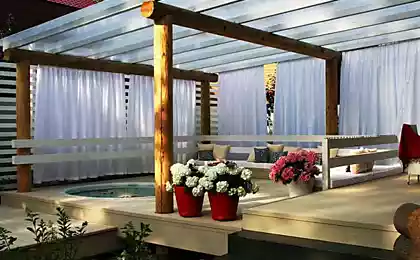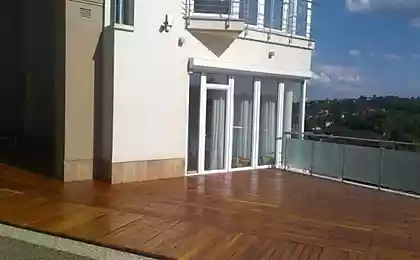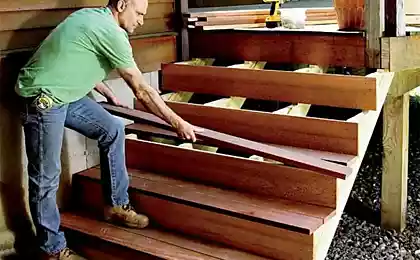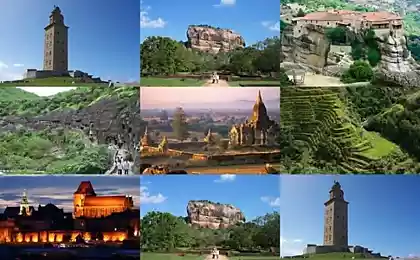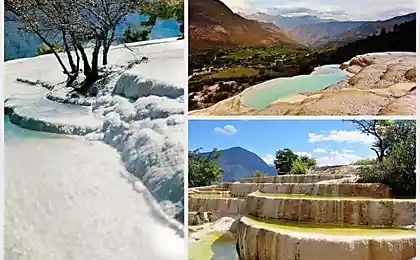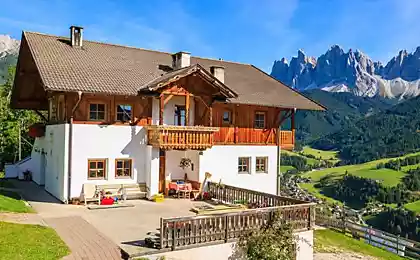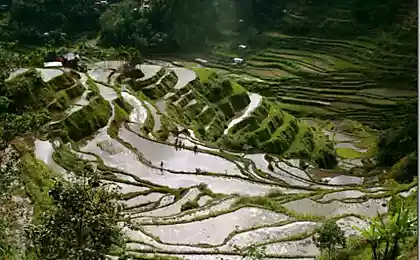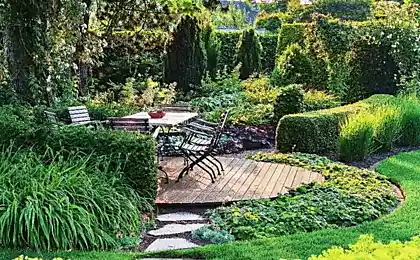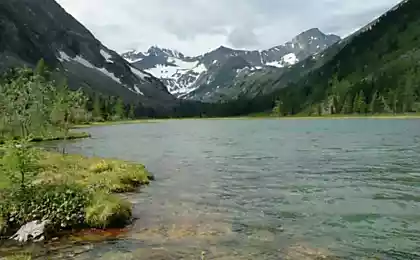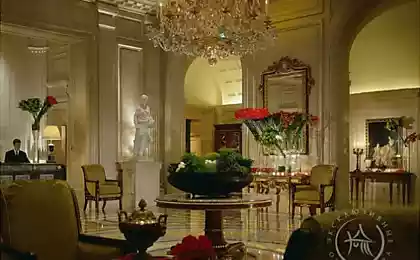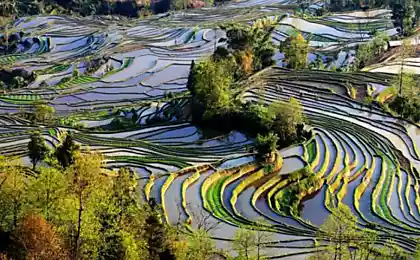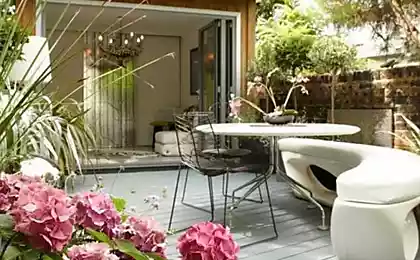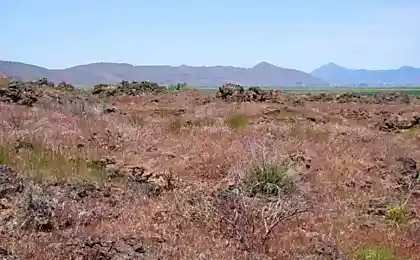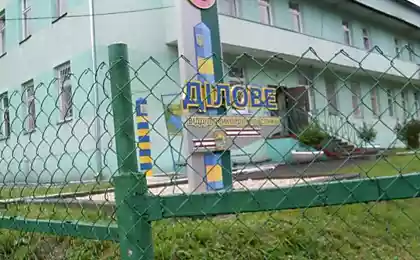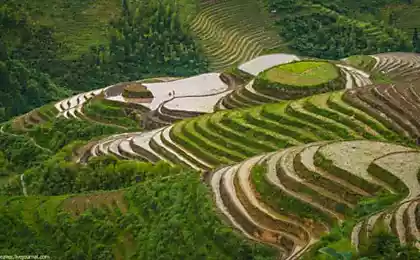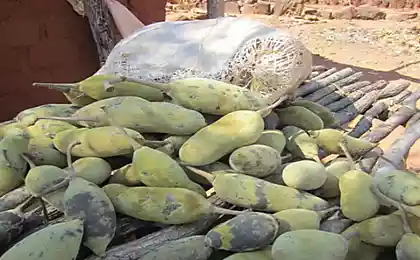1126
Longsha District. Terraces "Dragon Ridge"
Located 27 km south of the town Lunshen, extensive rice terraces "Dragon Ridge" (Longji) layer by layer covers the hills and mountains. This is one of the most famous terraces in all of China, became famous far beyond the borders of China because of its fabulous scenery.
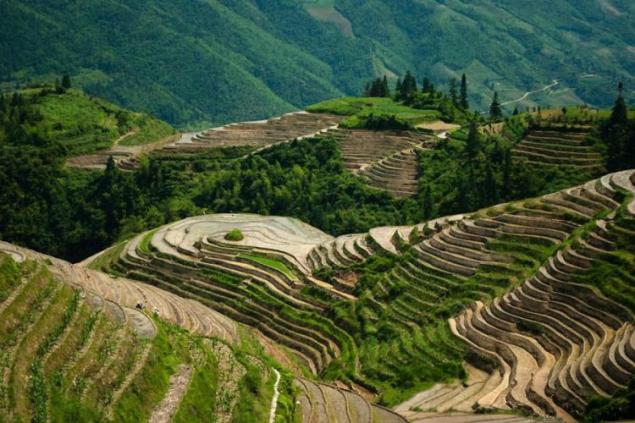
Lunshen Old people have a saying: "Where there is land, there will risovayaterassa." In the Chinese province of Guangxi in the two-hour drive from Guilin problem seeding and rice cultivation on steep slopes have long been resolved. Another Yuan Dynasty in the late 13th century, has launched a large-scale task of sowing rice mountains Lunshen.
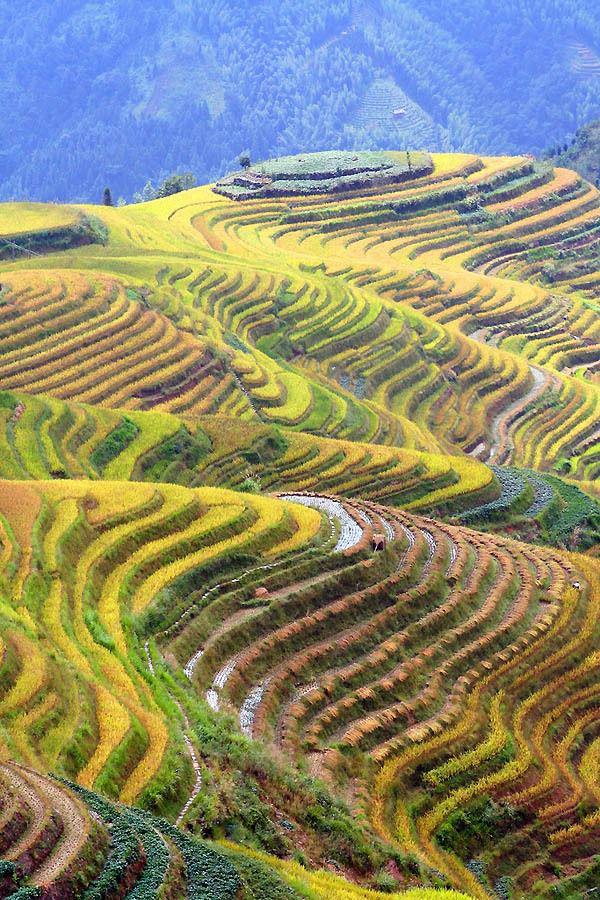
To create rice fields known as Longji, it took four centuries. During this time, many generations worked hard on the terraces for their family a year's supply of rice. But in addition, they created the stunning countryside. Not for nothing that the Chinese call it a small miracle "delightful terrace».
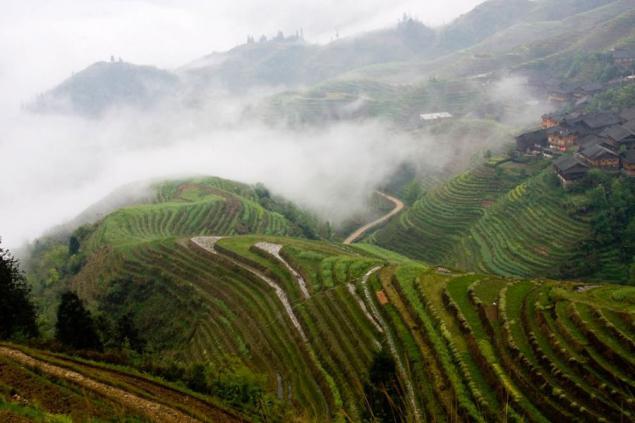
At various times of the year, this area looks different. Skopje for zimuvoda spring poured on the field in the form of rain. In summer, thanks to winds that swaying shoots rice fields turn into green rice fields. Autumn, ripe harvest field acquires a noble golden color, and in the winter the entire slope covered with snow.
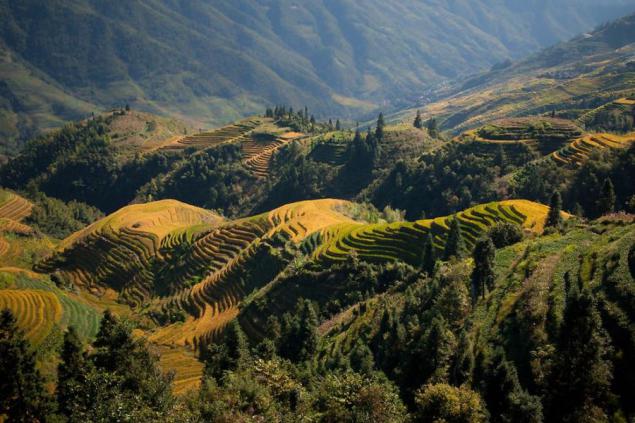
People who are forced to massively to settle in this hilly area during the Yuan Dynasty, there was a shortage of the crop because of the peculiarities of the local region: the increasing population could not get enough of a great harvest. Therefore, people have come up with an unusual technique for better use of land suitable for plowing.
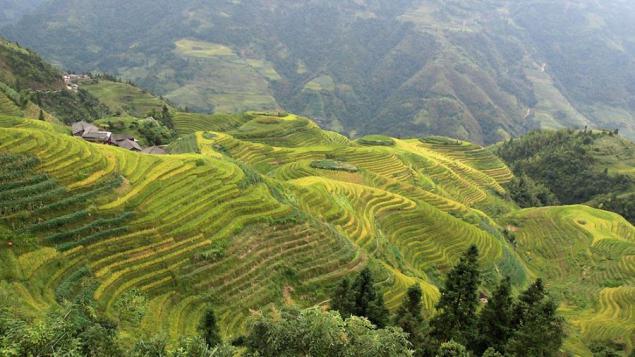
The top human ingenuity -Natural rainwater is the only source of water in mountainous regions. The water is stored in reservoirs and spring rice fields are flooded with water. Located right vshahmatnom terraces provide the use of all the water without a trace.
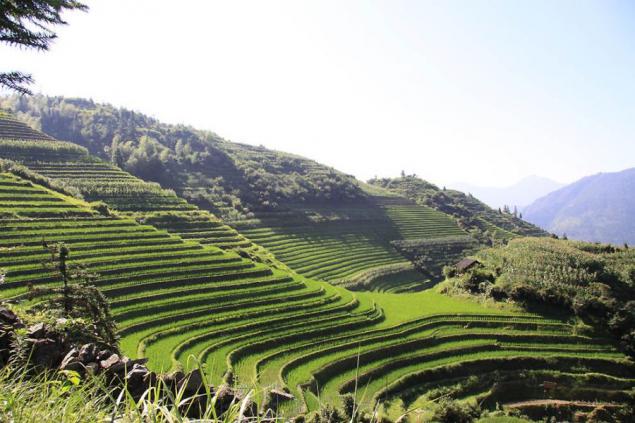
Representatives of the Zhuang ethnic group called the terraces "backbone of the Dragon." With 800 meters high to the naked eye can see that the fields are like flakes slumbering dragon writhing ridge.
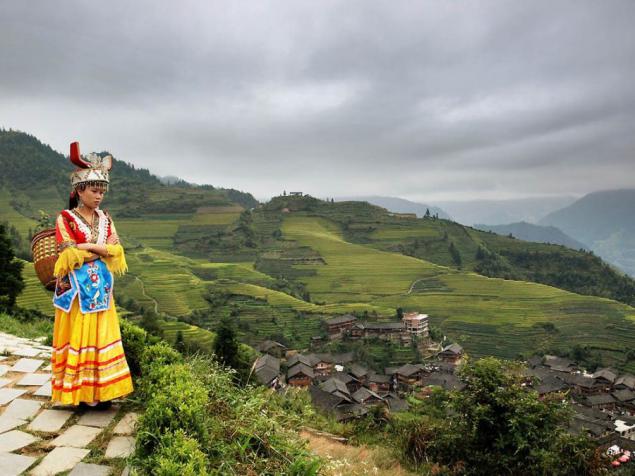
Rice fields, the highest point of which is located at an altitude of 1,100 meters, covers an area of 60 square kilometers
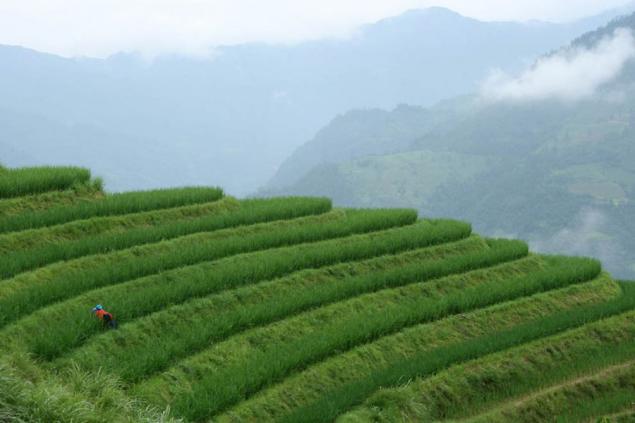
There are always glad to visitors and many locals even open small inns for travelers. Visiting rice fields, you can learn a lot about the culture and characteristics of the local community. Terraces is best to visit in spring or summer, to discover them for yourself in the best possible way. Arriving in the fall, you will see the high rice terraces look like undulating hills.
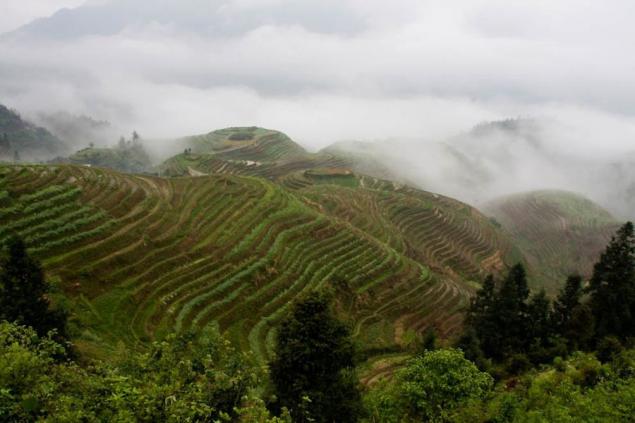
For centuries, rice terraces were in the possession of families from generation to generation, they were passed from father to son. When the communists came to power - the rules have changed: the birth of a person it is allocated a specific plot of land, and after the death of a local committee alienates him in its use and later transfers to someone else.
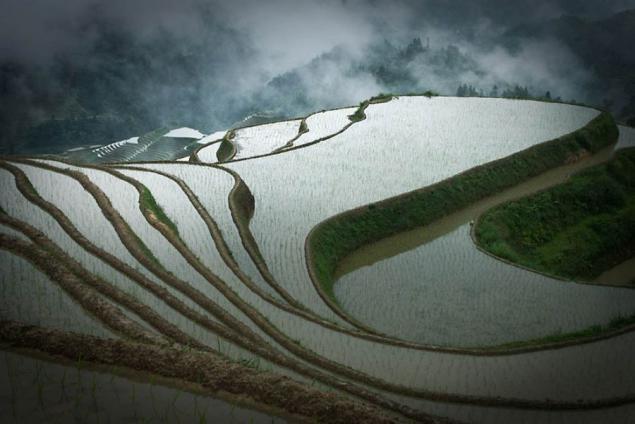
While every family is able to grow crops only for their own needs, rice is grown, not only for food. After all, in life there is always room for small pleasures. And every year, part of the crop, the so-called sticky rice, used for the production of rice wine.
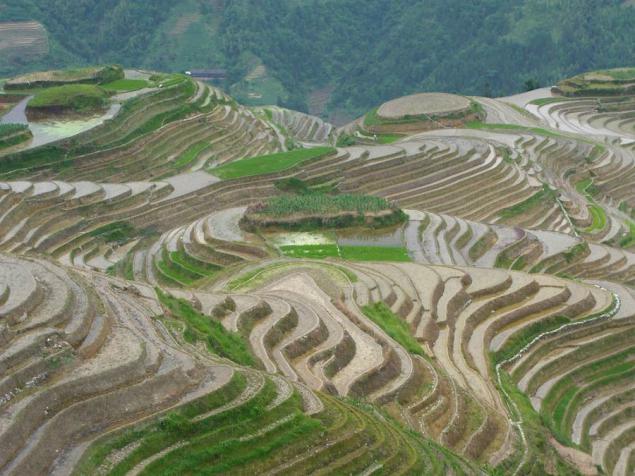
Now, when the yard twenty-first century, the role of rice fields, of course, is not as important as before. More and more young people going to work in Lunshen or even further. And despite the fact that the terraces are still seeded rice, they no longer serve as the main source of income for the local population.
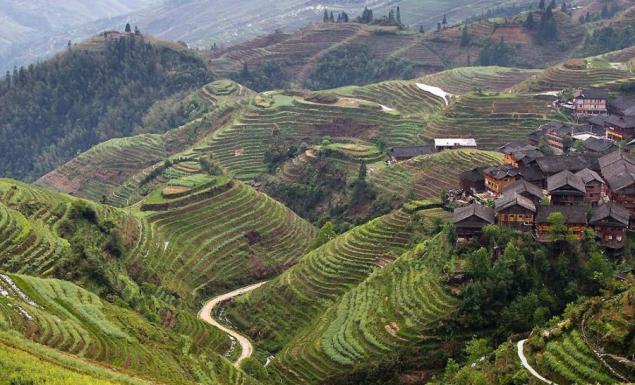
Grown here rice can not be sold at a competitive price, since the area of the terraces just can not produce large amounts of grain. However, the rice fields are increasingly included in the tourist map, and the villagers earn annually from tourism more than the rice fields. Therefore, rice plantations in Lunshene be as long as they do not become bored tourists.
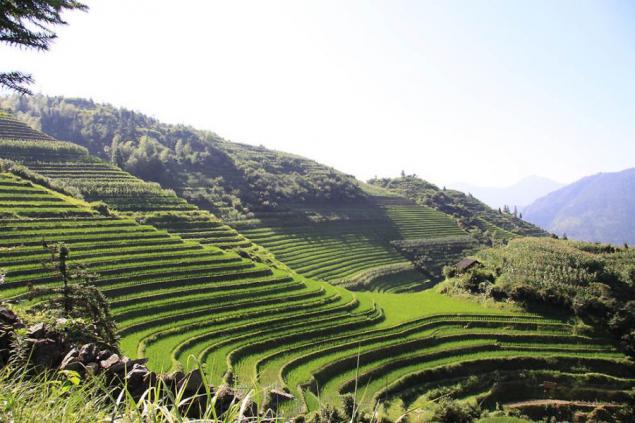
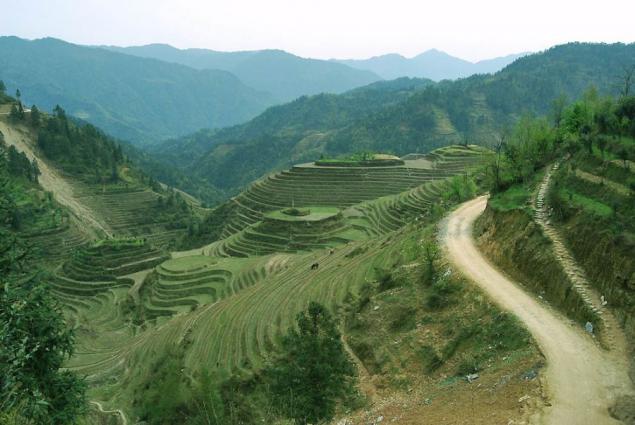
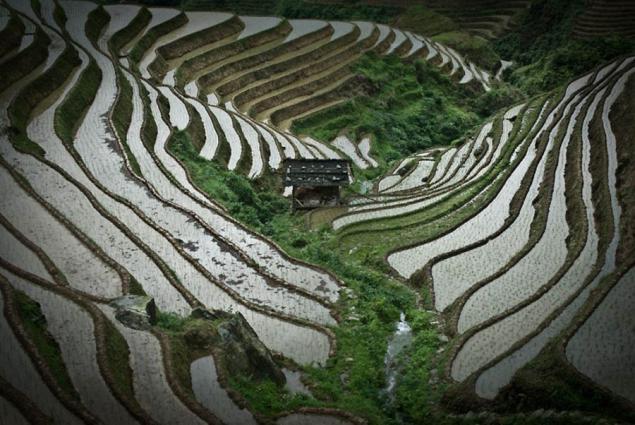
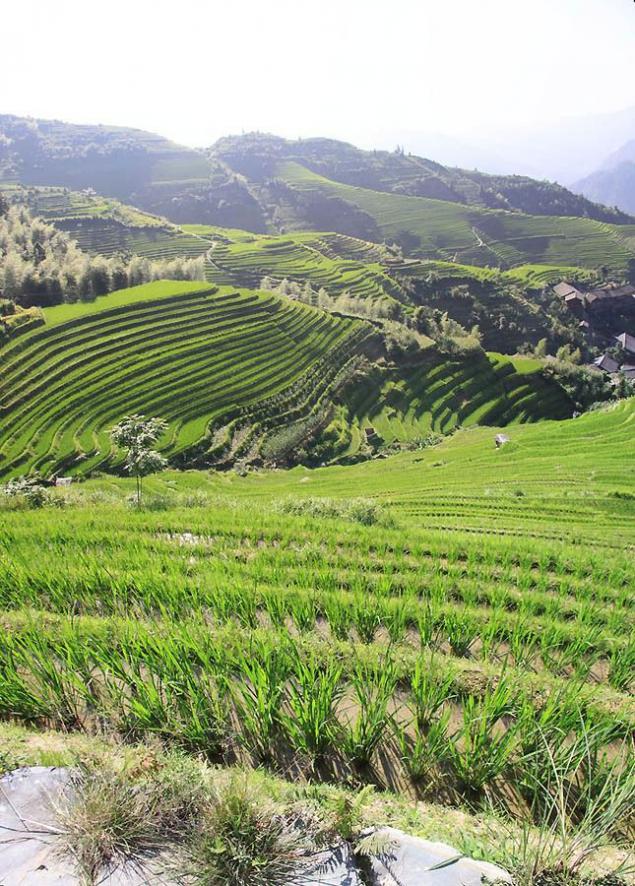
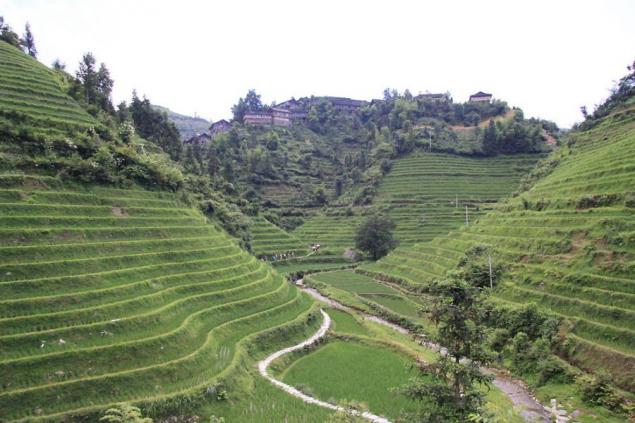
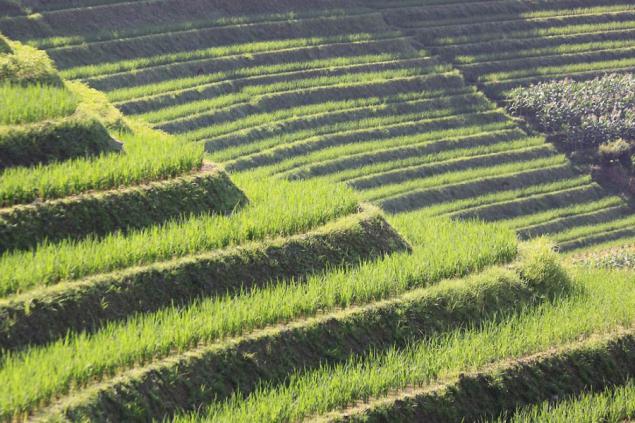
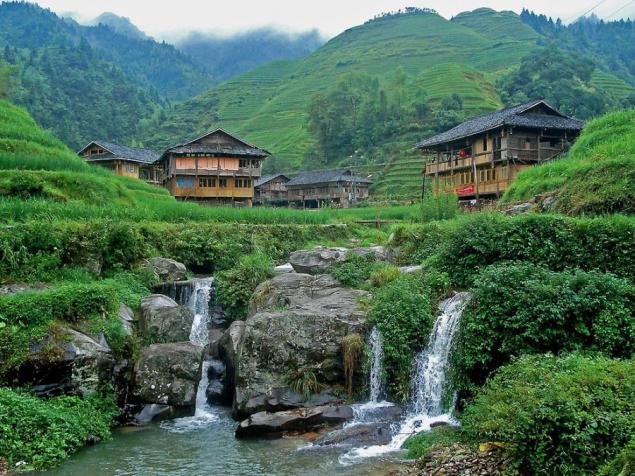
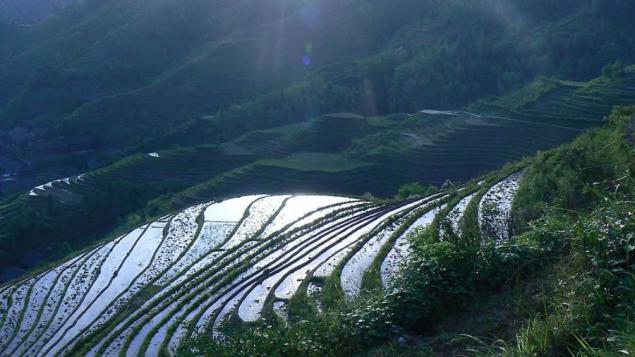
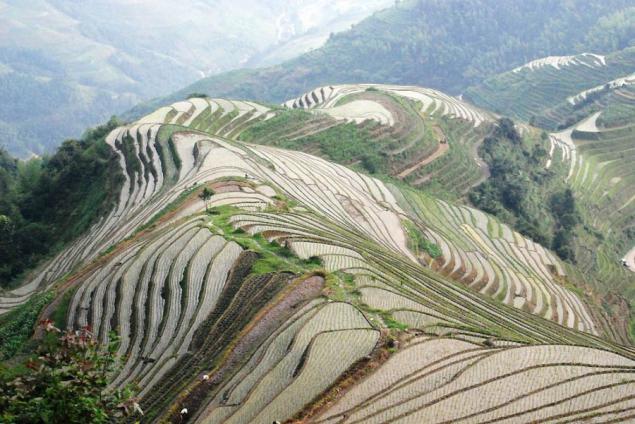
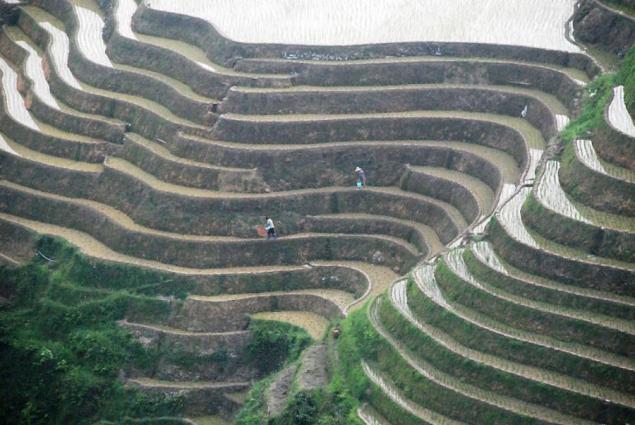
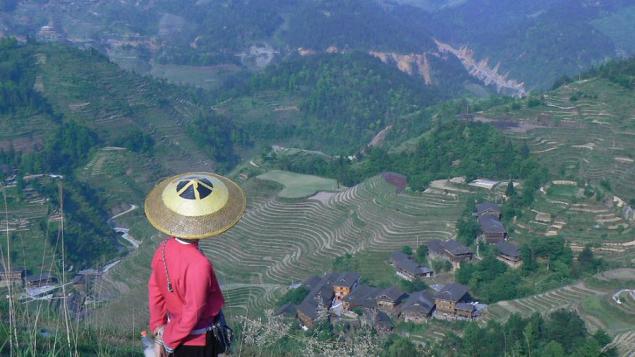
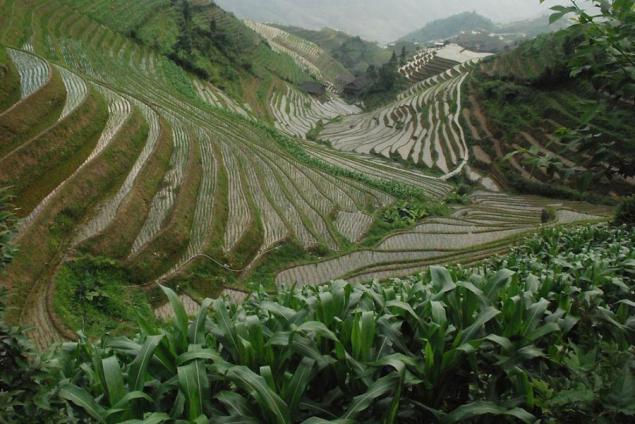
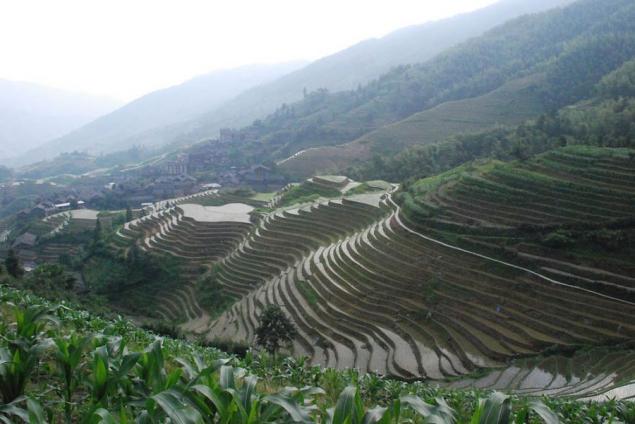
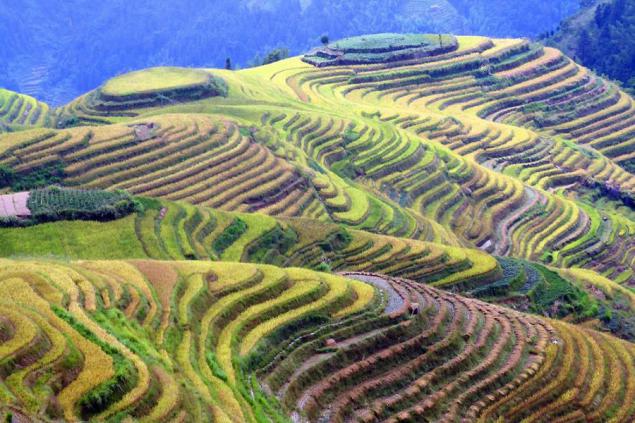
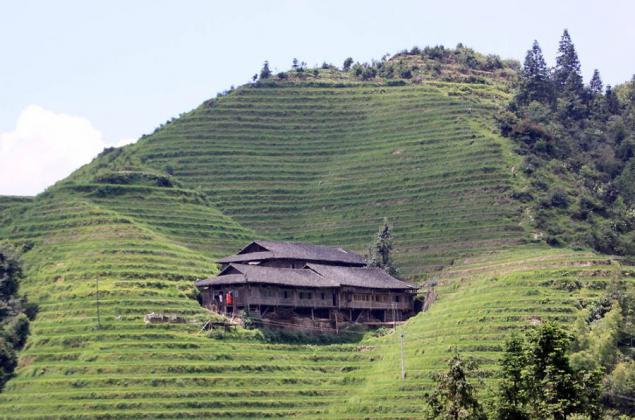
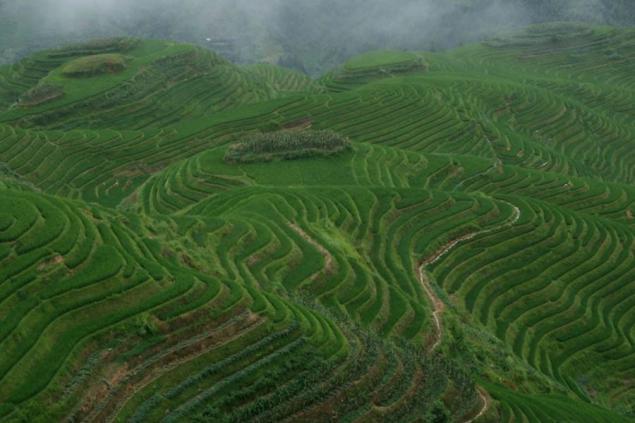
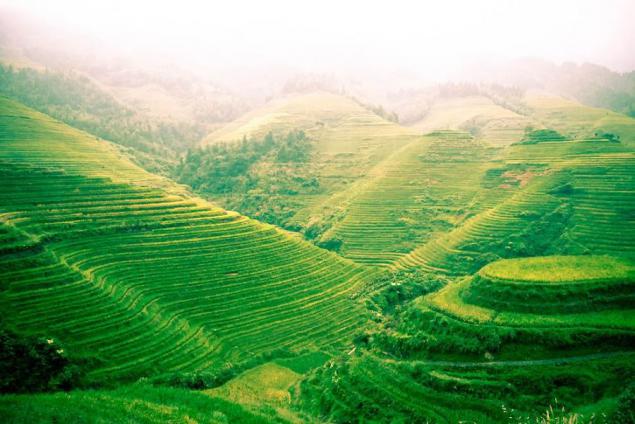

Lunshen Old people have a saying: "Where there is land, there will risovayaterassa." In the Chinese province of Guangxi in the two-hour drive from Guilin problem seeding and rice cultivation on steep slopes have long been resolved. Another Yuan Dynasty in the late 13th century, has launched a large-scale task of sowing rice mountains Lunshen.

To create rice fields known as Longji, it took four centuries. During this time, many generations worked hard on the terraces for their family a year's supply of rice. But in addition, they created the stunning countryside. Not for nothing that the Chinese call it a small miracle "delightful terrace».

At various times of the year, this area looks different. Skopje for zimuvoda spring poured on the field in the form of rain. In summer, thanks to winds that swaying shoots rice fields turn into green rice fields. Autumn, ripe harvest field acquires a noble golden color, and in the winter the entire slope covered with snow.

People who are forced to massively to settle in this hilly area during the Yuan Dynasty, there was a shortage of the crop because of the peculiarities of the local region: the increasing population could not get enough of a great harvest. Therefore, people have come up with an unusual technique for better use of land suitable for plowing.

The top human ingenuity -Natural rainwater is the only source of water in mountainous regions. The water is stored in reservoirs and spring rice fields are flooded with water. Located right vshahmatnom terraces provide the use of all the water without a trace.

Representatives of the Zhuang ethnic group called the terraces "backbone of the Dragon." With 800 meters high to the naked eye can see that the fields are like flakes slumbering dragon writhing ridge.

Rice fields, the highest point of which is located at an altitude of 1,100 meters, covers an area of 60 square kilometers

There are always glad to visitors and many locals even open small inns for travelers. Visiting rice fields, you can learn a lot about the culture and characteristics of the local community. Terraces is best to visit in spring or summer, to discover them for yourself in the best possible way. Arriving in the fall, you will see the high rice terraces look like undulating hills.

For centuries, rice terraces were in the possession of families from generation to generation, they were passed from father to son. When the communists came to power - the rules have changed: the birth of a person it is allocated a specific plot of land, and after the death of a local committee alienates him in its use and later transfers to someone else.

While every family is able to grow crops only for their own needs, rice is grown, not only for food. After all, in life there is always room for small pleasures. And every year, part of the crop, the so-called sticky rice, used for the production of rice wine.

Now, when the yard twenty-first century, the role of rice fields, of course, is not as important as before. More and more young people going to work in Lunshen or even further. And despite the fact that the terraces are still seeded rice, they no longer serve as the main source of income for the local population.

Grown here rice can not be sold at a competitive price, since the area of the terraces just can not produce large amounts of grain. However, the rice fields are increasingly included in the tourist map, and the villagers earn annually from tourism more than the rice fields. Therefore, rice plantations in Lunshene be as long as they do not become bored tourists.

















